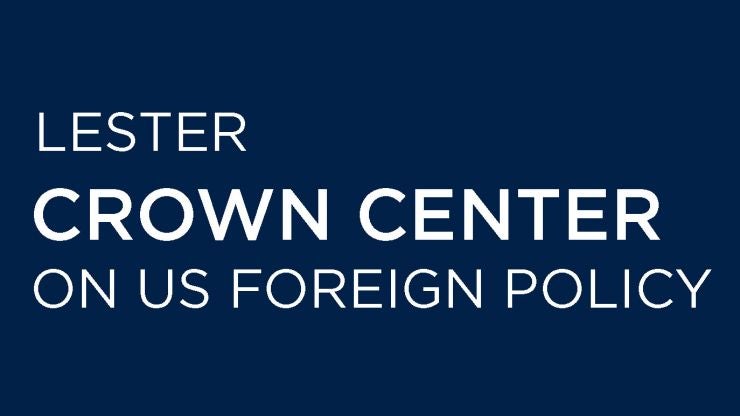A task force, cochaired by Chuck Hagel, Malcolm Rifkind, and Kevin Rudd with Ivo Daalder, argues that fraying American alliances and a rapidly changing security environment have shaken America’s nuclear security guarantees and threaten the 50-year-old nuclear nonproliferation regime.
Executive Summary
In recent decades, the threat of nuclear proliferation has emanated primarily from the Middle East and from south and northeast Asia. But the proliferation threat wasn’t always concentrated in these regions. Long before countries like North Korea and Iran topped the list of nuclear threats, leaders in Washington and elsewhere worried about a different group of countries—America’s allies in Europe and Asia. Indeed, in the early 1960s, intelligence officials projected that by the mid-1970s there likely would be 10 to 15 nuclear powers in the world within a decade, as countries like Australia, Germany, Italy, Japan, South Korea, and Turkey would opt to join a growing nuclear club.
The nuclear Non-Proliferation Treaty (NPT) of 1968 was designed to prevent this, and it did. But it succeeded in large part because of a concerted US effort since the 1960s to reassure its allies around the world that America’s nuclear umbrella would extend to their territory and ensure their security. Rather than developing their own national nuclear capabilities, key allies in Europe and Asia opted to rely on the US nuclear guarantee instead. Since the NPT entered into force in 1970, just four countries (India, Israel, Pakistan, and North Korea) have acquired nuclear weapons.
More recently, however, questions about the credibility of the American nuclear guarantee have arisen again in Europe and Asia. Allies in both regions confront growing military threats from a resurgent Russia, a rising China, and a nuclear North Korea. At the same time, successive US administrations have sought to retreat from some longstanding commitments, leaving America’s allies around the world uncertain whether they can still rely on the United States for their defense and security—nuclear and otherwise. So far, the discussions about nuclear deterrence and reassurance have played out largely beyond public view. But the issue is becoming increasingly salient, given growing threats from Russia and China especially, and growing doubts about the United States. America and its allies cannot ignore this new reality. For if we are to prevent new nuclear proliferation among these allies, it is essential to acknowledge that what has long been unthinkable is becoming thinkable once more.
Although the Biden administration has pledged to reaffirm long-standing US security commitments to its allies, a change in administration alone is unlikely to suffice in reestablishing the credibility of the US security guarantee, including the nuclear umbrella, in the eyes of most allies. Trust has been broken, and it will take more than a simple return to business as usual to reassure allies of America’s commitments. If Washington is to reestablish its credibility, it will take time and great effort on the part of both the United States and its allies to rebuild confidence in their joint framework for collective defense.
The United States will have to take the lead in rebuilding trust and confidence in its security commitments—including the nuclear guarantee. It will have to demonstrate that commitment in new and evident ways and work closely and collaboratively with its allies in Europe and Asia to renew their collective defense framework, including especially its long-neglected but increasingly important nuclear dimension. At the same time, allies will need to do their part to help rebuild the relationships with Washington and among themselves to strengthen overall deterrence and make US reassurance more credible and convincing. And all of the allies will need to commit to rethinking the arms control framework, nuclear and conventional, that should guide relations between the United States, Russia, China, and key Asian and European powers.
To that end, we make the following recommendations:
Rebuilding US Leadership
There are three major steps the United States can take to rebuild confidence in the US security commitments to its allies, including recommitting to extended nuclear deterrence.
- The president of the United States should reaffirm the foundational cornerstones of America’s security commitments , including reaffirming its treaty-based collective defense commitments unequivocally, reversing the decision to remove US troops from Germany and elsewhere, and negotiating long-term, balanced cost-sharing arrangements for US forces based in Europe and Asia.
- The United States needs to proactively raise the salience of nuclear weapons issues in its alliance relations , including by bringing allies into the nuclear planning process from the outset, increasing alliance crisis- management exercises, and involving alliance leaders at the highest level in regular wargaming.
- The United States needs to take steps to bolster the deterrence and defense capabilities of the European and Asian alliances , including increasing conventional defense capabilities in Europe and Asia, deploying additional missile defense capabilities, and, if needed, reviewing its nonstrategic nuclear weapons posture in consultations with allies to assure the adequacy of its forward-based systems and commitments.
Strengthening European Defense Capabilities
There is a pressing need to rebalance the transatlantic partnership.
- Europe needs to take more responsibility for its own defense and security, and the United States needs to actively encourage and promote European defense and security cooperation and autonomy.
- European defense cooperation needs to focus on real military capabilities, not just more processes, including by fulfilling existing commitments to make real investments to improve warfighting capabilities and enhancing overall readiness and the rapid deployability of European forces.
- Europe needs to build up the nuclear dimension of its defense efforts, including by retaining and modernizing capabilities for existing NATO nuclear missions and by France and Britain working together to extend their nuclear deterrents to their European allies.
Multilateral Deterrence in Asia
With Asia increasingly seen in Washington as the primary strategic and geopolitical theater of its global engagements, it is increasingly critical for the United States and its principal allies to coordinate strategy and combine efforts.
- The United States should prioritize reestablishing strong trilateral security cooperation with Japan and South Korea , which is a prerequisite both to address the North Korean threat and to build a multilateral security framework within Asia as a whole.
- The United States should create an Asian Nuclear Planning Group, bringing Australia, Japan, and South Korea into the US nuclear planning processes and providing a platform for these allies to discuss specific policies associated with US nuclear forces.
- The Quadrilateral Security Dialogue partners should give consideration to how they would handle a request for the eventual inclusion of South Korea in their dialogue.
Multilateral Arms Control
The biggest nuclear unknown is the scope and eventual scale of the Chinese nuclear deterrent forces. The United States and its allies have a powerful incentive to penetrate China’s nuclear opacity and get a greater insight into its capabilities. Arms control can play a role in this effort, providing greater transparency about capabilities, an exchange of views on intentions, and enhanced stability in the overall nuclear relationship. An expanded arms control framework should include a multipronged effort.
- Following the extension of New START, the United States and Russia should negotiate a new bilateral arms control agreement . Such a new agreement could cover all nuclear warheads, including those in storage, as well as novel nuclear delivery systems, and provide crucial reassurance to America’s allies.
- The five permanent members of the UN Security Council (P5) should engage in a strategic dialogue on nuclear weapons issues, including a dialogue on strategic stability, the role of nuclear weapons, the relationship between offense and defense, the impact of new technologies, and other critical strategic issues.
- The P5 should negotiate nuclear confidence-building and transparency measures, which could include as a first step invitations by the United States and Russia to representatives of the other nuclear powers to observe inspections that both countries conduct as part of existing arms control obligations.
- Efforts to multilateralize nuclear arms control should place particular emphasis on engaging China, which could include engaging China in a dialogue akin to the Strategic Arms Limitations Talks and allowing China to participate in New START monitoring as first steps, with the ultimate goal to agree on force limitations at the lowest possible level for each country.
Conclusion
For more than 50 years, America’s security alliances have been critical to ensuring the nonproliferation of nuclear weapons. By extending the nuclear umbrella to defend its allies in Europe and Asia, the United States ensured their security against nuclear attack and intimidation and removed any perceived need on their part to acquire a nuclear capability. However, the security climate confronting allies is changing rapidly, as Russia moves aggressively to exert its influence, China grows ever bolder and more ambitious in its global reach, North Korea expands its growing nuclear and missile capabilities, and a politically divided America raises questions about the future of its global engagement. Confronted with these changing circumstances, US allies face growing uncertainty about the long-term viability of their alliances with the United States and are beginning to assess the possibility of alternative security arrangements, including regarding the nuclear dimension.
The Biden administration has made rebuilding America’s alliances a fundamental priority from the moment it takes office. Reaffirming collective defense commitments in Europe and Asia is a necessary and welcome step. But it will take more than presidential words to rebuild alliances. It will require transforming relationships in more fundamental ways—including bolstering deterrence and defense capabilities all around, bringing European and Asian allies into US nuclear planning processes, and expanding arms control efforts that involve not just Russia but also, and especially, China. This is hardly an impossible agenda; but its urgency is underscored by the reality that without rebuilding the alliance structures that have provided the foundation of security in Europe and Asia, the question of nuclear proliferation among allies could once again emerge on the agenda.
Acknowledgments
The Chicago Council on Global Affairs would like to thank the John D. and Catherine T. MacArthur Foundation for the generous financial support that made this report possible. This report benefited from the contributions of Brian Hanson in conceptualizing this project, as well as the superb research support of Lily Wojtowicz and background research by Brian Steiner.
Task Force Cochairs
Chuck Hagel, former US Secretary of Defense
Malcolm Rifkind, former UK Foreign Secretary and Secretary of Defense
Kevin Rudd, former Australian Prime Minister and Foreign Minister
Task Force Members
Nobuyasu Abe, former Commissioner, Japan Atomic Energy Commission
Carl Bildt, former Swedish Prime Minister and Minister of Foreign Affairs
Rick Burt, former US Ambassador to Germany and Chief Negotiator for START
Espen Barth Eide, former Norwegian Foreign Minister and Defense Minister
François Heisbourg, former Chairman, International Institute for Strategic Studies
Wolfgang Ischinger, former German State Secretary of Foreign Affairs
Nobukatsu Kanehara, former Japanese Deputy National Security Adviser
Lee Sanghee, former Korean Minister of Defense and Chairman of Joint Chiefs of Staff
Curtis Scaparrotti, former NATO Supreme Allied Commander Europe
Radek Sikorski, former Polish Foreign Minister and Defense Minister
Sinan Ülgen, former Turkish Foreign Service Officer
Byung-se Yun, former Korean Minister of Foreign Affairs
Project Director
Ivo H. Daalder, President of the Chicago Council on Global Affairs and former US Ambassador to NATO


